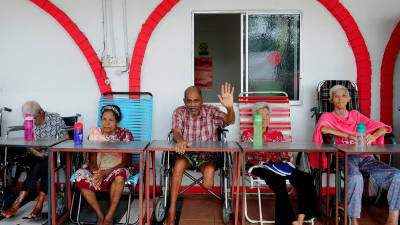KUALA LUMPUR: As Malaysia approaches becoming an ageing nation by 2043, economist Dr Ahmed Razman Abdul Latiff suggests adopting the time bank model to sustain elderly care.
The system allows volunteers to earn credits for services like caregiving, which they can later redeem for personal care.
Dr Ahmed Razman highlighted that countries like Japan and Thailand already use this model to strengthen community involvement in elder care.
Malaysia entered its ageing transition in 2021 and will see 14% of its population aged 65 and above by 2043.
This demographic shift will increase healthcare costs and strain the workforce, making alternative solutions crucial.
Time banking could reduce reliance on public funds and ease tax burdens while fostering social cohesion.
Prime Minister Datuk Seri Anwar Ibrahim recently announced the National Ageing Blueprint (2025–2045) to address these challenges.
The blueprint includes long-term care system improvements, legal reforms, and expanded vocational training in elder care.
Thailand’s JitArsa Bank, a government-led time bank, serves as a successful example of structured community care.
Dr Ahmed Razman also proposed integrating time banks with waqf assets to enhance sustainability.
Waqf properties like land or buildings could support retirement homes managed by time bank volunteers.
Individuals and corporations could fund facility upkeep, while others earn credits through services like cleaning or caregiving.
This approach lowers operational costs and encourages broader participation in managing social assets.
Time banking promotes intergenerational interaction and inclusivity, allowing non-financial contributors to secure future care.
Dr Ahmed Razman urged collaboration between the government, private sector, and NGOs to develop a national framework.
He emphasised reducing bureaucracy and engaging youth to ensure public support for the initiative.
If implemented effectively, time banking could reshape Malaysia’s elderly care system and strengthen societal resilience. – Bernama
